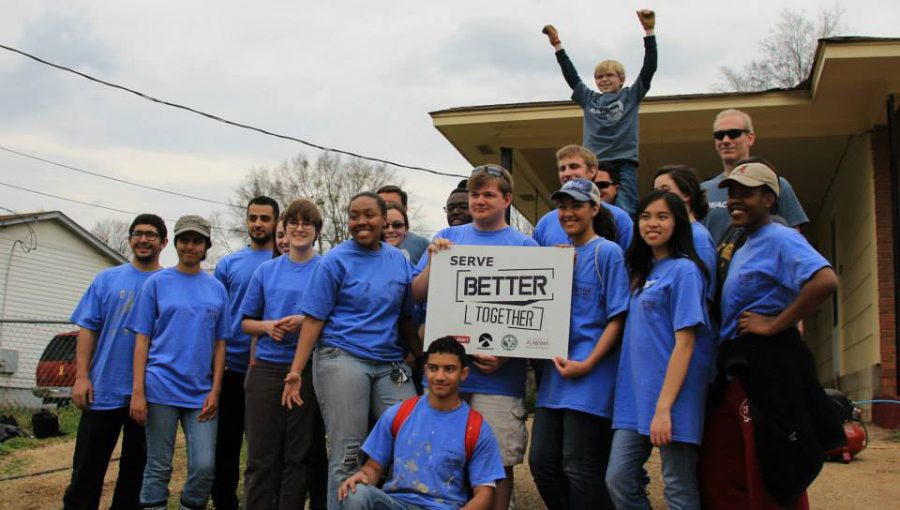The team is made up of 12 employees, 10 of which are students. Lane McLelland, head of UA Crossroads, said she isn’t a member to promote her personal religious values or those of her coworkers. Instead, she and her team work to promote acceptance and tolerance amongst the different religions and cultures found on campus.
The mission of Crossroads is to build relationships across campus amongst students of different cultures by providing innovative programs to increase dialogue and interaction so students can build a better understand and appreciation for the diversity on campus.
“We don’t want the cultural and religious diversity on campus to just be tolerated, we want it to be celebrated,” McLelland said.
Crossroads reaches out to students of all religious beliefs, including the nonreligious. They work closely with student organizations such as The Crimson Secular Student Alliance to ensure atheist and agnostic students are included in their organization and its pursuit for UA students to coexist despite differences.
“The mission that Crossroads advocates is absolutely essential for students to learn,” McLelland said. “When you look around and see all the bitterness and animosity in the world, it’s staggering. We come away from our events and see students talk and interact with each other in ways they have never done before.”
Crossroads facilitates communication through initiatives like Serve Better Together, a community service-based event, and Sustained Dialogue, a course offered by McLelland to help student’s better address controversial issues surround intercultural and interfaith issues.
“Crossroads teaches you a lot about yourself, you get to explore all these things you didn’t know before,” said Paige Bolden, a first year graduate student and student employee for UA Crossroads. “It helps give you insight and knowledge on other cultural perspectives, and that’s incredibly powerful.”
Serve Better Together is an interfaith initiative promoting teamwork amongst students of various regions.
“I encourage students to come to our programs,” Bolden said. “Even if it seems uninteresting to you, give it a chance. I promise you’ll walk away with something.”
Towards the end of each Crossroads event, a dialogue forum is held for students to reflect on and discuss interfaith relations on campus.
“You’ll hear a student say, ‘Wow I never knew you felt marginalized in that way,’” Mclelland said. “That’s the moment when the light bulb goes off and students really began to build respect for the struggles of other from other cultures.”









